Children
THE WAY OUT RECORD by Bruce Haack
Wikipedia page here.
Thanks to pal Lawrence Person.
Posted By: Paul - Sun Jan 29, 2017 -
Comments (0)
Category: Music, Children, Bohemians, Beatniks, Hippies and Slackers, Psychedelic, 1960s
The Playground Jungle
You could easily spend hours at The Playground Jungle, investigating all the childhood lore you half-recall, whether silly or naughty.Here's a seasonal ditty I had never heard of:
We three kings of Leicester Square
selling ladies underwear
how fantastic, no elastic
not very safe to wear
O, star of wonder, star of light
the royal knickers caught alight
how fantastic, no elastic
guide me to the traffic lights
Or you could also buy their book.
Posted By: Paul - Thu Dec 08, 2016 -
Comments (4)
Category: Antiques, Anachronisms and Throwbacks, Culture and Civilization, Customs, Children
The Littlest Maniac
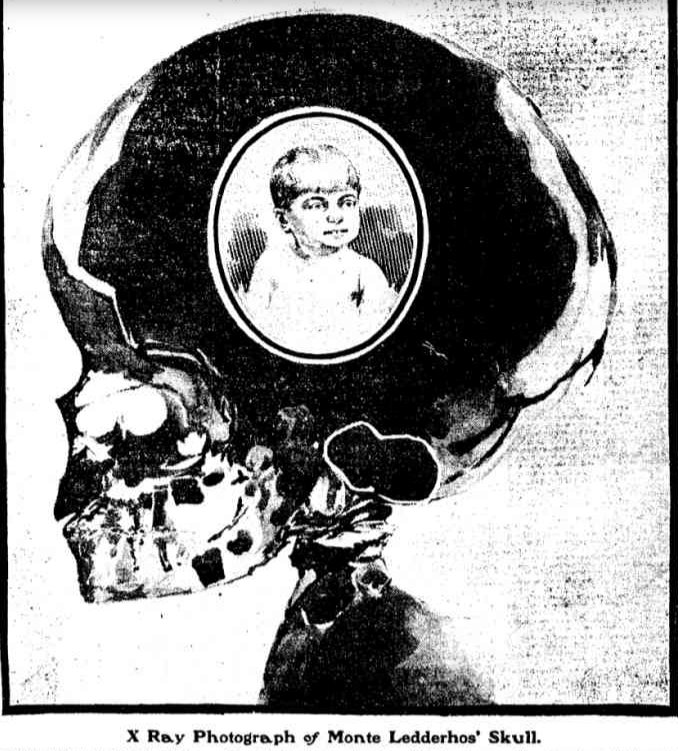
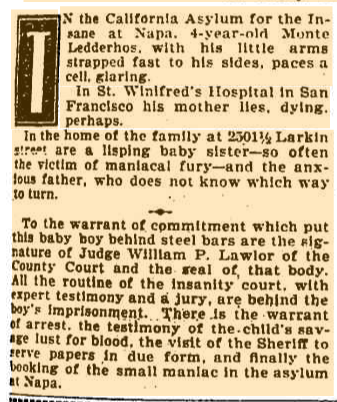
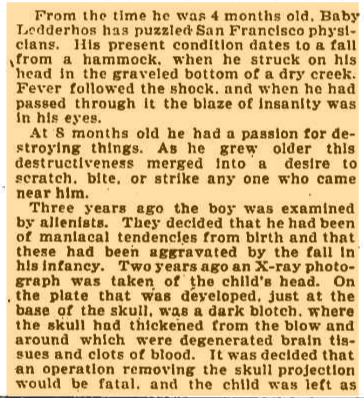
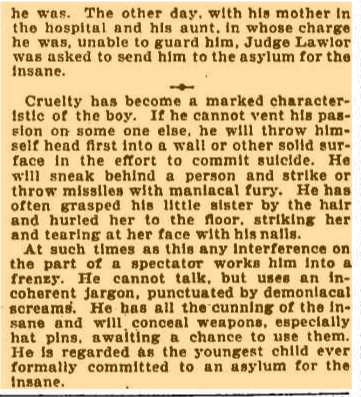
Original article here.
Posted By: Paul - Sat Dec 03, 2016 -
Comments (4)
Category: Children, 1900s, Brain Damage
Alma Deutscher
Alma Deutscher, 11-year-old composer, about to premiere her first full opera, "Cinderella"
Posted By: Paul - Sun Nov 20, 2016 -
Comments (1)
Category: Human Marvels, Music, Children
The Bully
Posted By: Paul - Sat Nov 19, 2016 -
Comments (0)
Category: Antisocial Activities, PSA’s, Children, Juvenile Delinquency, 1950s
Follies of the Madmen #295
So that's where corporate executives come from! It's something in their breakfast cereal as kids!
Posted By: Paul - Tue Nov 01, 2016 -
Comments (5)
Category: Business, Advertising, Products, Food, Children, 1960s
Kenner Easy Care Manicure Set
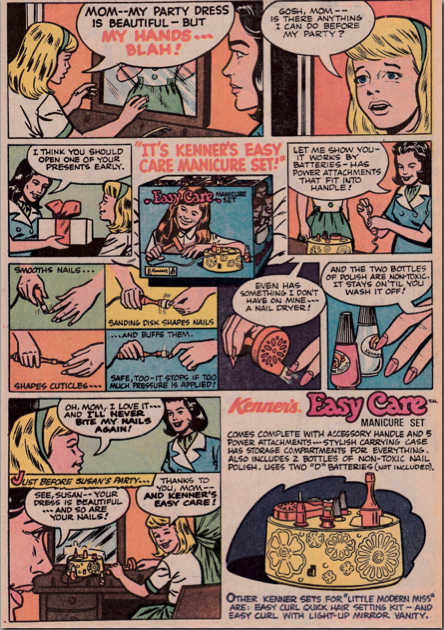
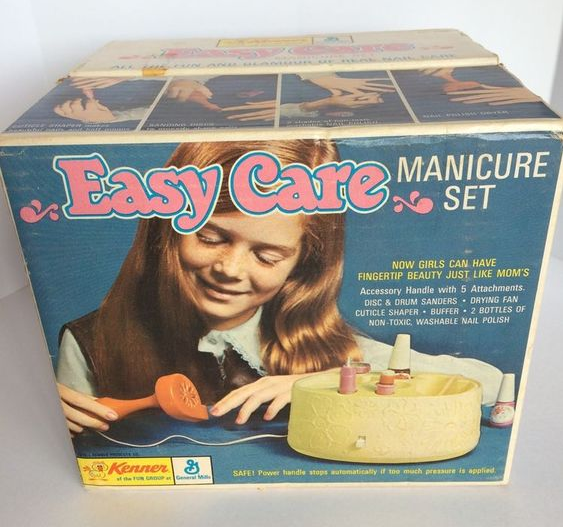
Posted By: Paul - Fri Oct 21, 2016 -
Comments (3)
Category: Cosmetics, Stereotypes and Cliches, Toys, Children, 1970s
The Importance of Penmanship
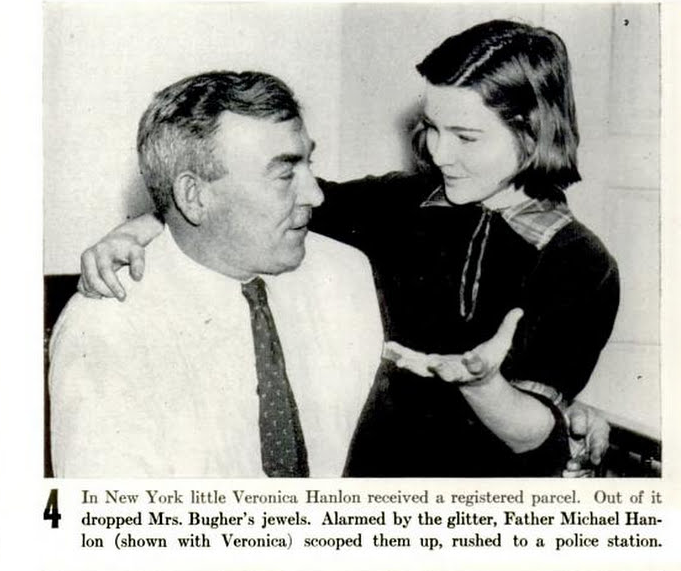
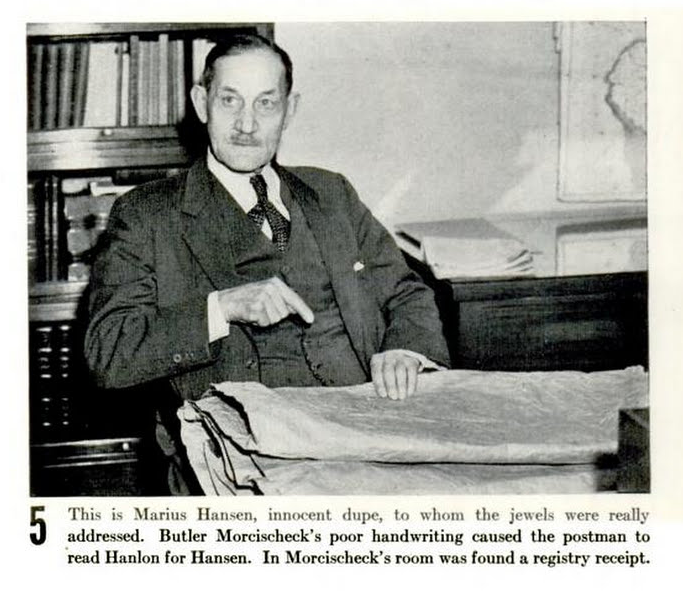
Original article here.
1) Butler steals $350,000 worth of jewelry. (This was in 1937, so really worth $5,849,059.03.)
2) Mails jewels in package to a preset postal drop.
3) Scrawls address so badly, jewels delivered to innocent young girl.
4) Kerblooey.
Posted By: Paul - Thu Sep 08, 2016 -
Comments (1)
Category: Stupid Criminals, Children, 1930s
8-year-old Undertaker
It sounds like Duana Grant was a very practical-minded young girl. At the age of 8, instead of being squeamish about death, she was learning how to be a mortician, in preparation for taking over the family business at the appropriate time.And it seems that her childhood ambitions became reality. When she was older she married Wilbur Elder and helped run the Grant Elder Funeral Home in Arkansas City.
In 1973, her son took over the business, and he ran it until it closed in August 1982.
Duana died in 2002, at the age of 79.

Green Bay Press-Gazette - Mar 12, 1931
ARKANSAS CITY, Kan. — Death, abhorrent to most children, but to Duana Grant, 8, it awakens only sympathy and a desire to help. Born over an undertaker's parlor and associated with the business all her life, she is learning to conduct a funeral as well as any grownup. Outside business hours, Duana is just an ordinary child, with her school work, dolls, and roller skates.
Posted By: Alex - Sun Sep 04, 2016 -
Comments (0)
Category: Death, Jobs and Occupations, Children
Miss Stardust of 1948
A couple of points about this beauty queen.1) Mother was also a beauty queen, "Miss Brooklyn of 1928." Alas, I can find no pix of the elder Bayes.
2) Should a beauty queen who represents the "falsie" industry be considered for her natural endowments, or her falsie-assisted curves?
3) Note the loving care and extra attention that WU brings to all its posts, as we present the previous year's winner below, as a supplement.

Original pic here.
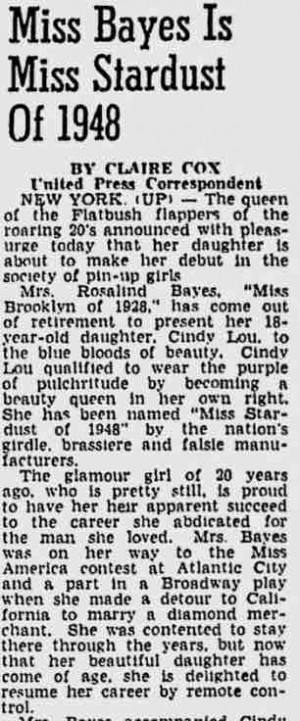
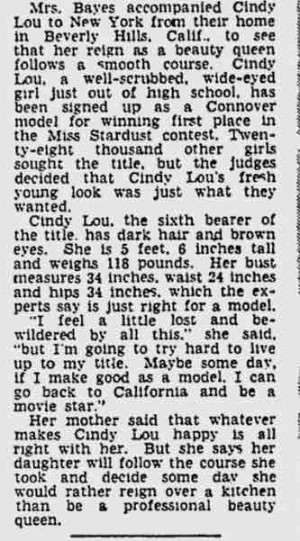
Original article here.
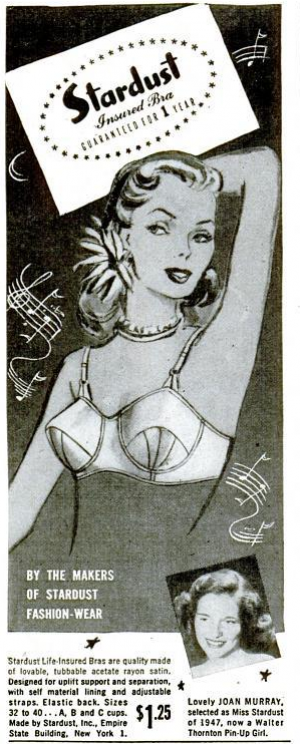
Original ad here.
Posted By: Paul - Thu Sep 01, 2016 -
Comments (3)
Category: Beauty, Ugliness and Other Aesthetic Issues, Body Modifications, Children, Parents, 1920s, 1940s

| Who We Are |
|---|
| Alex Boese Alex is the creator and curator of the Museum of Hoaxes. He's also the author of various weird, non-fiction, science-themed books such as Elephants on Acid and Psychedelic Apes. Paul Di Filippo Paul has been paid to put weird ideas into fictional form for over thirty years, in his career as a noted science fiction writer. He has recently begun blogging on many curious topics with three fellow writers at The Inferior 4+1. Contact Us |




